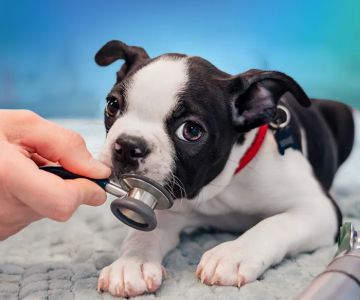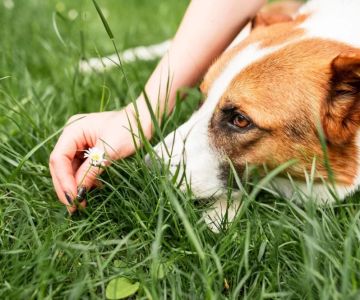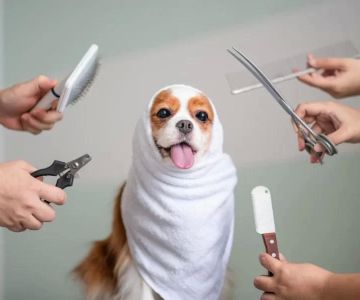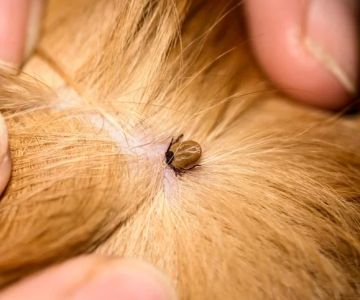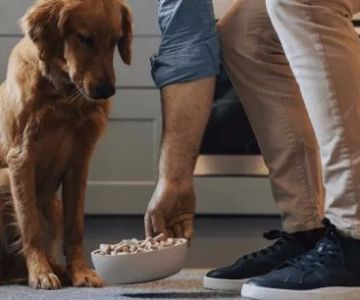- 1. The Importance of Pet Dental Care in Senior Pets
- 2. How Poor Dental Health Affects Senior Pets
- 3. Common Dental Problems in Senior Pets
- 4. Preventive Care for Pet Dental Health
- 5. When to See the Veterinarian for Dental Issues
- 6. How Hidden Brook Veterinary Can Help with Pet Dental Care
1. The Importance of Pet Dental Care in Senior Pets
As pets age, just like humans, they are more likely to experience health problems, and dental health is no exception. Many pet owners overlook the importance of dental care for senior pets, assuming that it is not a significant concern. However, maintaining good oral hygiene is crucial for senior pets, as poor dental health can lead to a variety of other health issues that affect their overall well-being. In fact, dental disease is one of the most common health problems seen in senior pets, and it can have serious consequences if left untreated.
As your pet ages, their teeth and gums naturally undergo wear and tear. Plaque and tartar buildup can lead to periodontal disease, which not only causes discomfort and pain for your pet but can also lead to systemic infections affecting their heart, kidneys, and liver. Therefore, ensuring that your senior pet receives proper dental care can extend their life, enhance their quality of life, and prevent costly treatments for other health conditions down the road.
2. How Poor Dental Health Affects Senior Pets
Dental health is not just about fresh breath. In fact, poor dental health in senior pets can lead to significant health issues that affect their entire body. Here are a few ways in which poor dental health can impact senior pets:
2.1 Pain and Discomfort
Just like humans, pets with dental issues often experience pain. Gum disease, tooth decay, and broken teeth can cause inflammation and discomfort, which can make it difficult for senior pets to eat or groom themselves. If left untreated, these conditions can lead to more severe infections, which will only exacerbate the pain. Senior pets are particularly vulnerable, as they may not show signs of discomfort until the condition becomes severe. Regular dental checkups and cleanings can help prevent pain and keep your pet comfortable.
2.2 Systemic Infections
One of the most concerning consequences of poor dental health in senior pets is the risk of systemic infections. When bacteria from the mouth enters the bloodstream through infected gums, it can spread to vital organs, including the heart, liver, and kidneys. This can lead to severe complications such as endocarditis, kidney failure, or liver disease. Preventing dental disease through regular cleaning and monitoring is key to protecting your pet from these serious health issues.
2.3 Impact on Immune System
A senior pet’s immune system may not be as robust as it once was, and chronic oral infections can weaken their immune defenses. The bacteria in the mouth can overwhelm the immune system, making your pet more susceptible to other infections. A healthy mouth is essential for maintaining a strong immune system, and regular dental care helps reduce the risk of your pet developing other health problems.
3. Common Dental Problems in Senior Pets
As pets age, they are more likely to experience specific dental problems. Here are some of the most common dental issues that affect senior pets:
3.1 Periodontal Disease
Periodontal disease is one of the most common dental issues in senior pets. It occurs when plaque and tartar buildup on the teeth and gums, causing inflammation and infection. If left untreated, periodontal disease can lead to tooth loss, pain, and systemic health problems. Symptoms include bad breath, red or swollen gums, and difficulty eating.
3.2 Tooth Loss
Tooth loss is another common issue for senior pets. As pets age, their teeth become more vulnerable to decay and infection, leading to tooth loss. This can make it difficult for pets to chew properly, affecting their ability to eat and get the nutrition they need. Regular dental care can help prevent tooth loss and ensure that your pet maintains a healthy mouth.
3.3 Oral Tumors
While less common, oral tumors can develop in senior pets and are often linked to poor dental hygiene. Tumors in the mouth can cause discomfort, difficulty eating, and bad breath. If detected early, some oral tumors can be treated with surgery or other therapies. Regular dental checkups allow veterinarians to monitor your pet’s oral health and detect tumors before they become too severe.
4. Preventive Care for Pet Dental Health
Preventive care is the best way to ensure that your senior pet maintains good dental health. Here are a few ways to help protect your pet’s teeth and gums:
4.1 Brushing Your Pet’s Teeth
Brushing your pet’s teeth regularly is one of the most effective ways to prevent dental disease. Start slowly and use a pet-safe toothbrush and toothpaste. Brush your pet’s teeth a few times a week to reduce plaque buildup and promote good oral hygiene. While it may take some time for your pet to get used to this process, it can significantly improve their dental health in the long run.
4.2 Professional Dental Cleanings
Professional dental cleanings are essential for senior pets. A veterinarian can perform a thorough cleaning to remove plaque and tartar that regular brushing cannot reach. These cleanings are typically done under anesthesia to ensure your pet is comfortable and safe throughout the procedure. Your veterinarian will also check for any signs of disease or tooth decay that may require treatment.
4.3 Dietary Supplements and Treats
Certain dietary supplements and treats can help maintain oral health. Specially formulated dental chews and treats can reduce plaque buildup and keep your pet’s teeth clean. Additionally, there are pet food formulas that promote oral health and help fight dental disease. Ask your veterinarian for recommendations on the best oral health products for your pet.
5. When to See the Veterinarian for Dental Issues
It’s important to schedule regular dental checkups with your veterinarian, especially as your pet gets older. If you notice any of the following signs, it’s time to seek veterinary care:
5.1 Bad Breath
Bad breath is a common sign of dental disease in pets. If your senior pet has persistent bad breath, it could indicate periodontal disease or other oral health issues. A professional cleaning may be necessary to address the cause of the odor.
5.2 Difficulty Eating
If your pet is having trouble chewing or seems to be avoiding food, it could be a sign of pain or discomfort in their mouth. Toothaches, gum disease, and oral tumors can make eating painful. Early intervention is key to preventing further complications.
5.3 Red or Swollen Gums
Red, swollen, or bleeding gums are often a sign of periodontal disease. If you notice these symptoms, it’s important to take your pet to the vet for a full dental examination.
6. How Hidden Brook Veterinary Can Help with Pet Dental Care
At Hidden Brook Veterinary, we understand the importance of dental care for senior pets. Our experienced team is here to provide comprehensive dental exams, professional cleanings, and personalized care for your pet’s oral health. We offer a variety of services to keep your pet’s teeth and gums healthy and to prevent serious dental issues from arising. Contact us today to schedule a dental checkup for your senior pet and give them the gift of a healthy mouth and a happy life!

